It’s perfectly normal not to feed your guests in some parts of the world, and the Dutch and Swedes recently went viral after someone discovered the fact online, raising an infinite amount of eyebrows and leaving people flabbergasted. You can read about it in our previous features here.
Meanwhile, Americans are known for their hospitality. Which is why it can sometimes backfire when ungrateful people come into the picture.
In fact, this is what happened to a 38-year-old mom who was babysitting her new neighbor’s kids. Turns out, the turkey sandwiches she served them for lunch were about to get her in trouble.
A mom was shocked after this new neighbor accused her of giving not good enough food to her kids while she voluntarily babysat them
Image credits: Grey_Coast_Media (not the actual photo)
Now, the OP wonders if she was really in the wrong for serving kids turkey sandwiches
Image credits: sloomstudio (not the actual photo)
The OP recounted the talk she had with the ungrateful neighbor
Image credits: average_texas_b***h
Offering food for guests, whether or not they are expected, is usual practice in America
In America, offering food for guests is a common practice. The 2022 YouGov poll ran a study and found that that 72% of Americans would offer for an unexpected guest to join them for a meal.
The invitation is more likely to be extended in the Midwest (79%), the West (74%), and the South (72%) than it is in the Northeast (63%). Meanwhile, Northeasterners are more likely than people in other parts of the country not offer food to their guests.
Image credits: cottonbro studio (not the actual photo)
Moreover, generally, older adults are more likely than younger adults to offer a meal. About nine in 10 adults over 65 say they would welcome their guest to the dinner table, compared to 56% of 18-to 29-year-olds. Women (78%) are also more likely than men (66%) to say they would offer food.
But in other parts of the world, guests should not expect to be given food if they haven’t made a plan for it
Food culture and the sharing that comes with it, however, is not similar in all parts of the world. A year ago, there was a huge stir on social media after a tweet about Swedes not sharing their food with their children’s guests went viral. The hashtag #Swedengate was trending for days, as people shared their mainly negative impressions and experiences about the Swedish approach to food sharing.
Image credits: YMikhaylova (not the actual photo)
And while many Americans would likely see not offering food to unexpected guests as rude, the researchers say there’s an explanation why Swedes and some other Scandinavian countries do that.
According to food studies professor Hakan Jonsson from Lund University in Sweden, the unwillingness to feed guests comes down to the days when food harvests had to be stored for many months during the long Nordic winter. Spontaneous dinners were traditionally not part of the culture, as families had to carefully plan and ration their food stores.
“There has been a very strong urge of independence, to not rely on others’ good will for having a good and independent life,” Professor Jonsson told The New York Times.
People expressed their support for the author in the comments
How to completely ruin the relationship with a new neighbour and with someone who VOLUNTEERED to look after your kids while you were busy. Ungrateful woman. Her loss though as she can't turn to her next door neighbour now to babysit ever again. She should just say 'sorry can't look after your kids today, all I have is Turkey sandwiches, so yeah, no'
It's just past lunch time, and haven't had lunch yet. I want a turkey with cheese sandwich for lunch, now.
I had lunch about an hour ago....but I want a turkey sandwich with cheese now too.
Load More Replies...what would the neighbor have done if the OP had made Kraft Mac n Cheese?!?! *gasp* poor kids, sounds like they had fun playing together, and the adults go and eff it up.
If it was only a Turkey Sand- no fruit, chips, drink etc. Her boys may have still been hungry. But you don't complain about that when someone is watching your kids for free. You shut your mouth. Teach your kids to say thank you very much. And if you're so lucky as to have her watch them again you pack a lunch you know will keep them full.
Load More Replies...How to completely ruin the relationship with a new neighbour and with someone who VOLUNTEERED to look after your kids while you were busy. Ungrateful woman. Her loss though as she can't turn to her next door neighbour now to babysit ever again. She should just say 'sorry can't look after your kids today, all I have is Turkey sandwiches, so yeah, no'
It's just past lunch time, and haven't had lunch yet. I want a turkey with cheese sandwich for lunch, now.
I had lunch about an hour ago....but I want a turkey sandwich with cheese now too.
Load More Replies...what would the neighbor have done if the OP had made Kraft Mac n Cheese?!?! *gasp* poor kids, sounds like they had fun playing together, and the adults go and eff it up.
If it was only a Turkey Sand- no fruit, chips, drink etc. Her boys may have still been hungry. But you don't complain about that when someone is watching your kids for free. You shut your mouth. Teach your kids to say thank you very much. And if you're so lucky as to have her watch them again you pack a lunch you know will keep them full.
Load More Replies...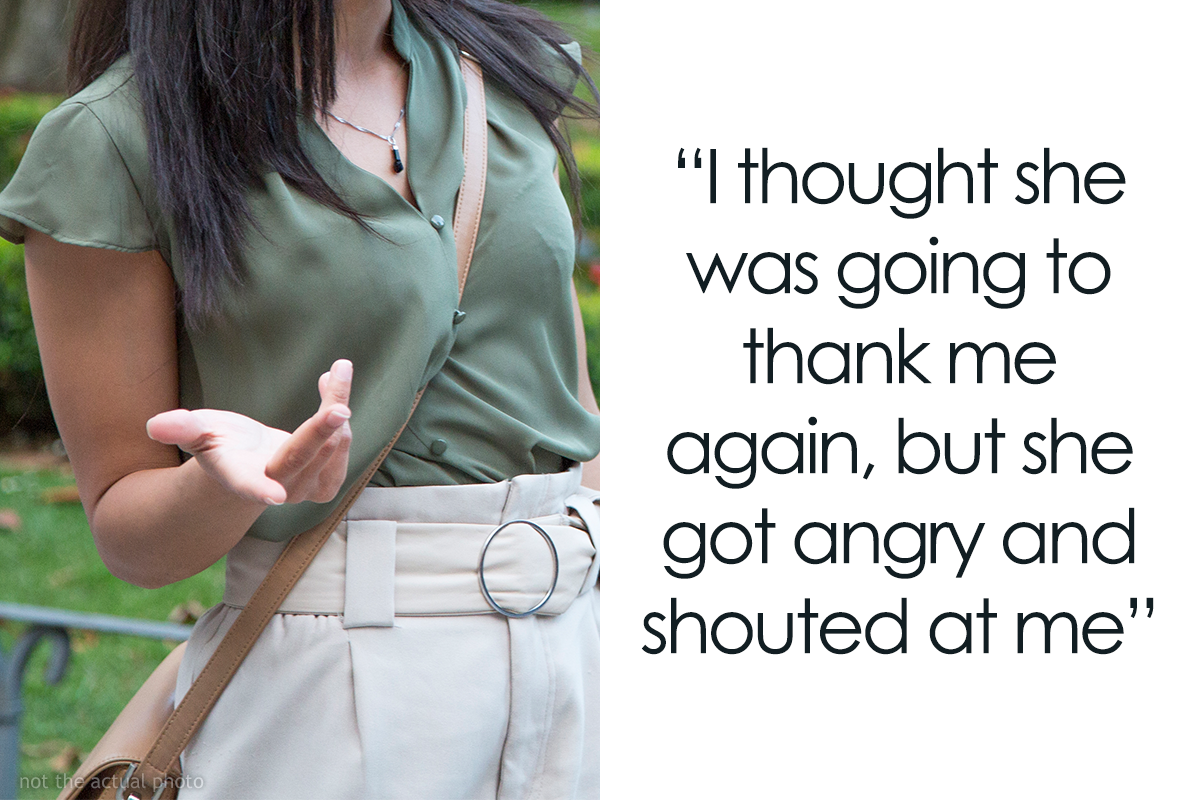
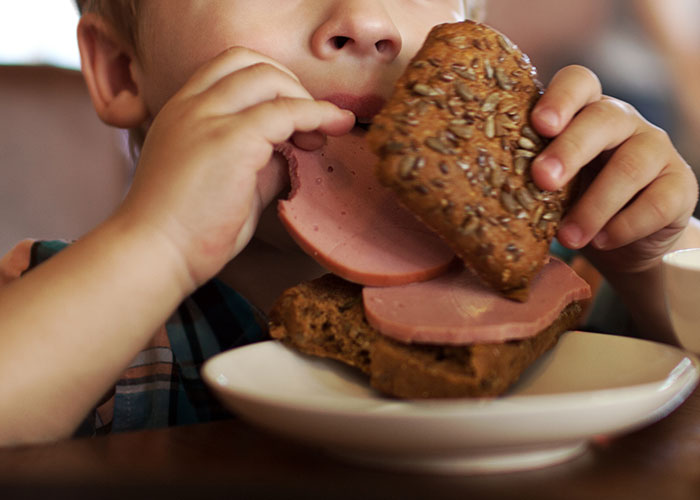
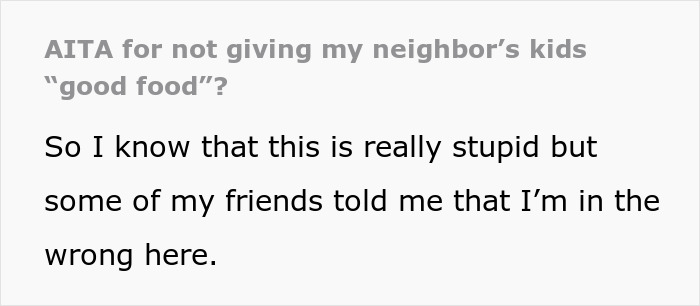

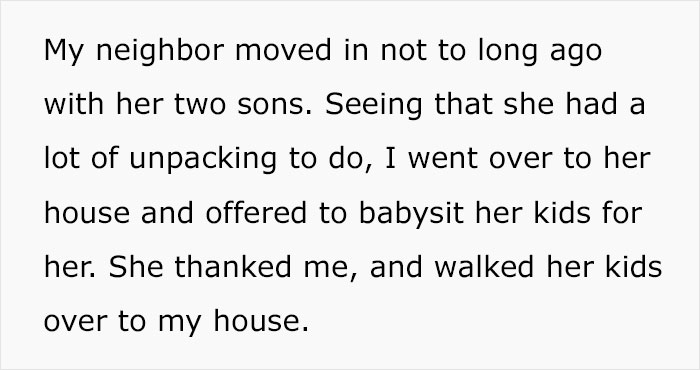
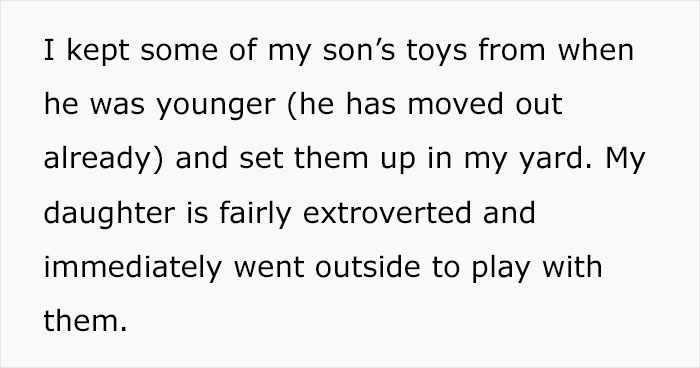
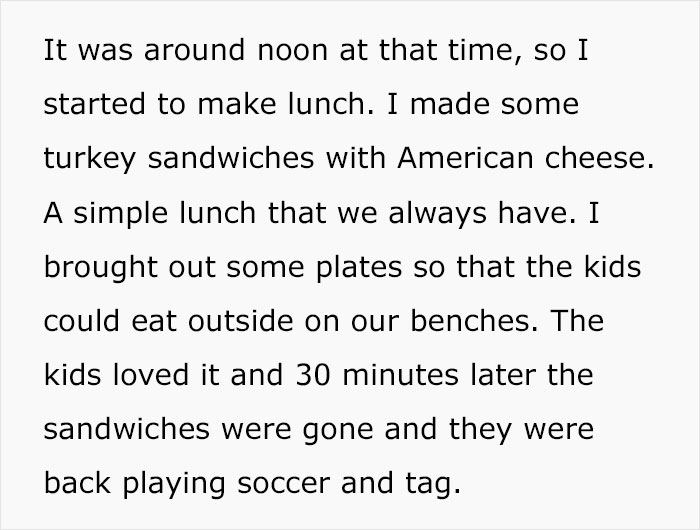




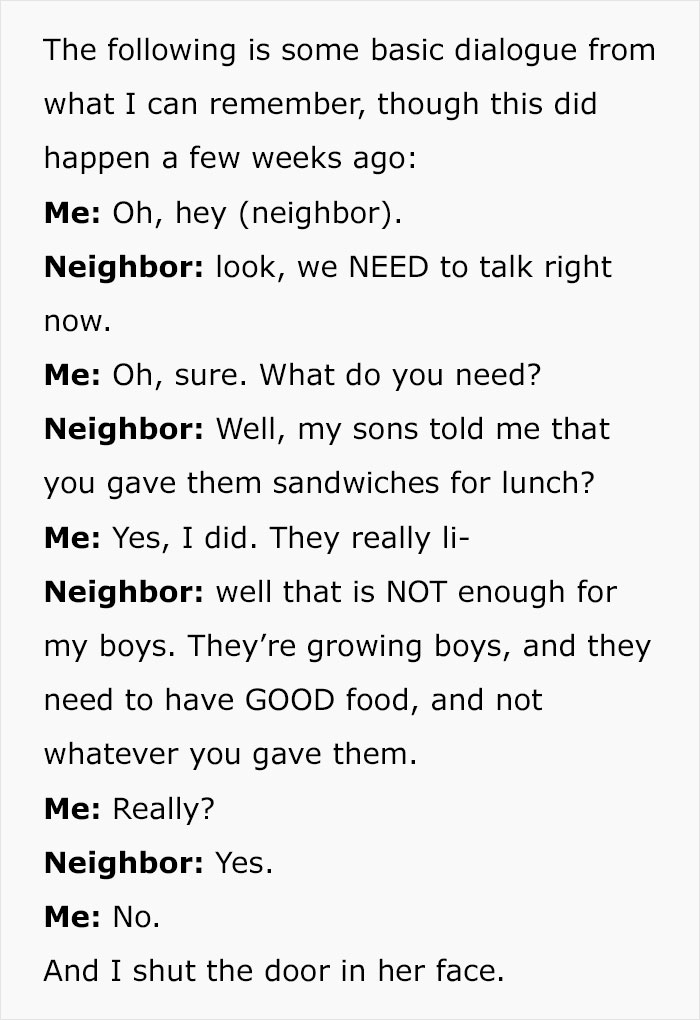
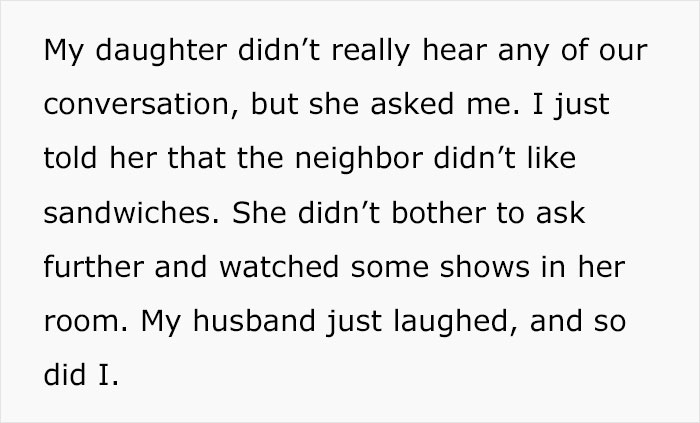
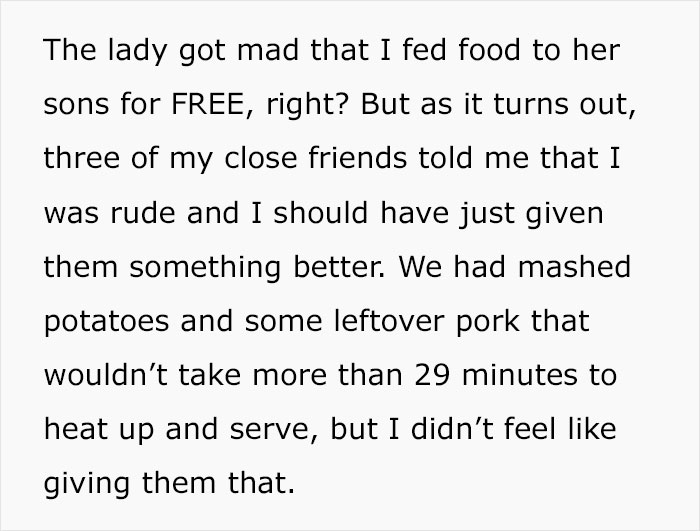

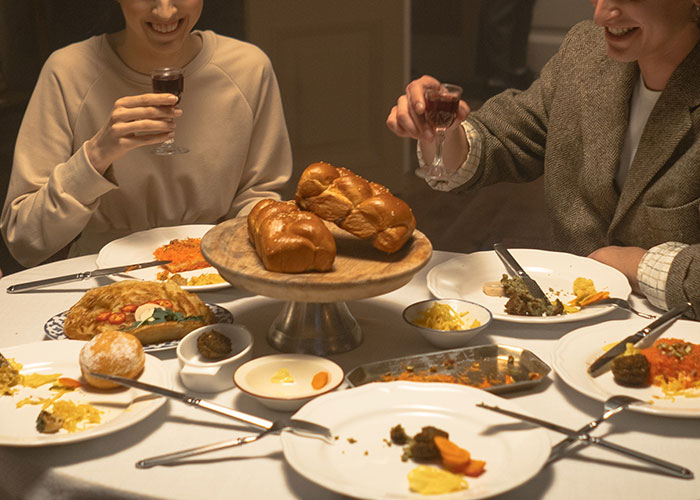

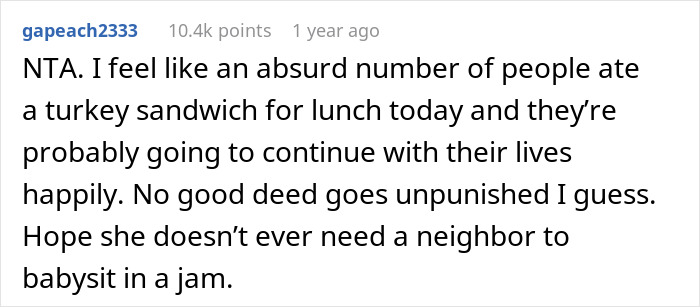

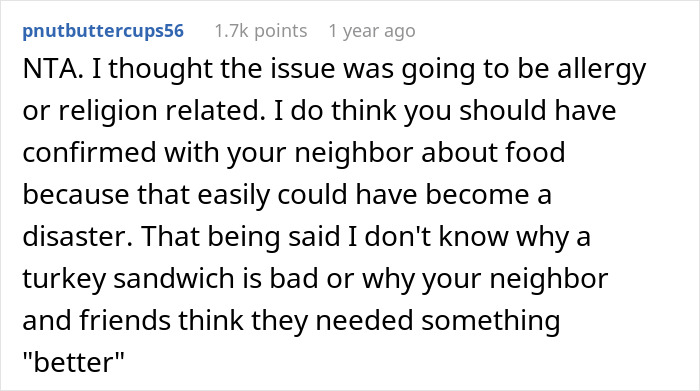
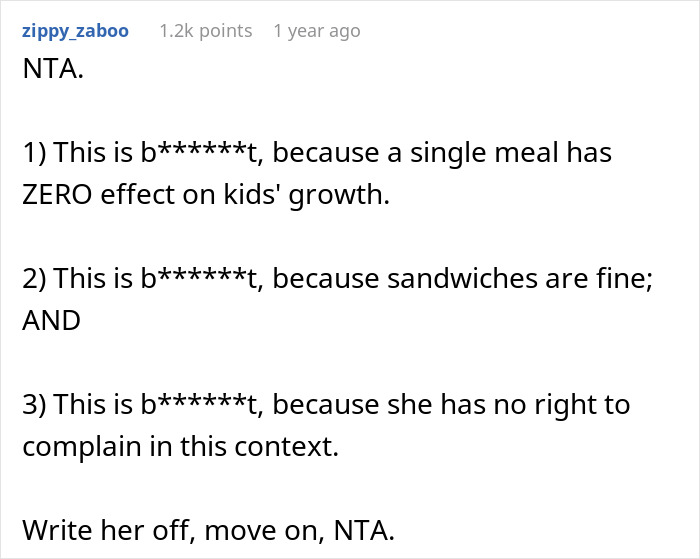


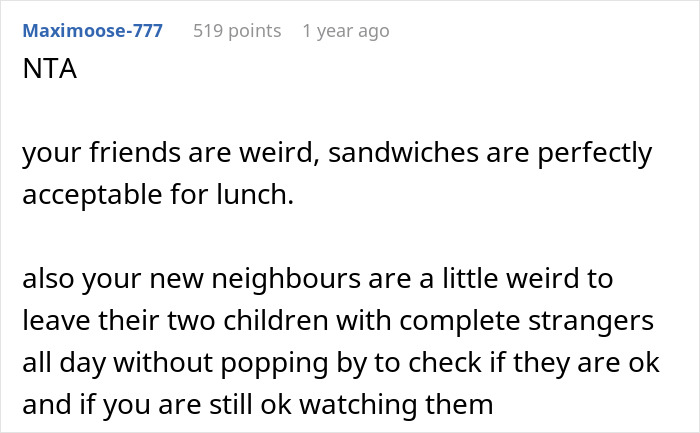


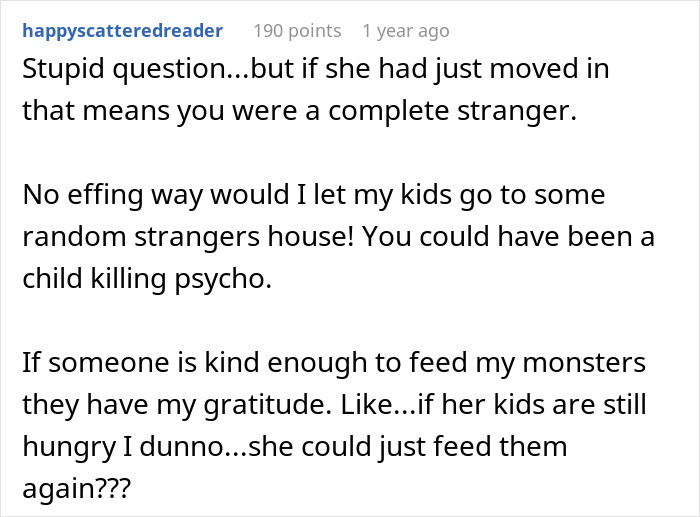




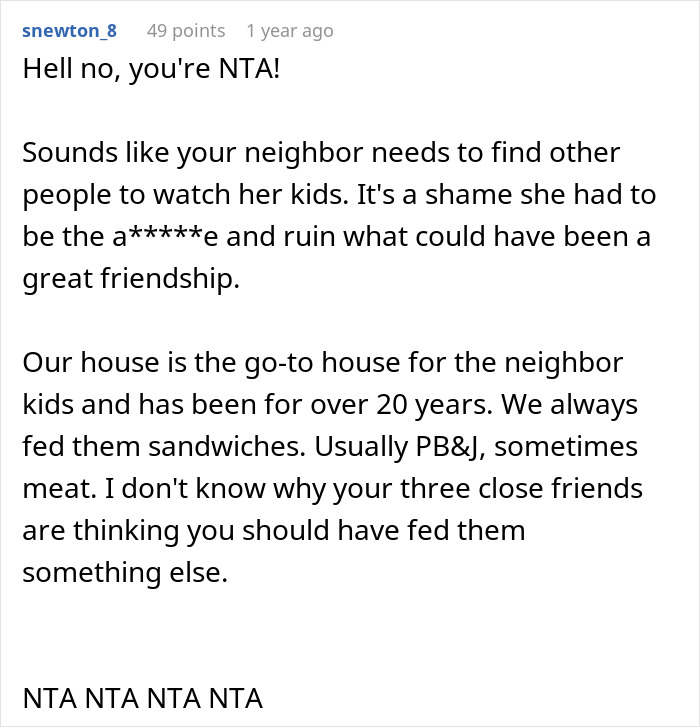
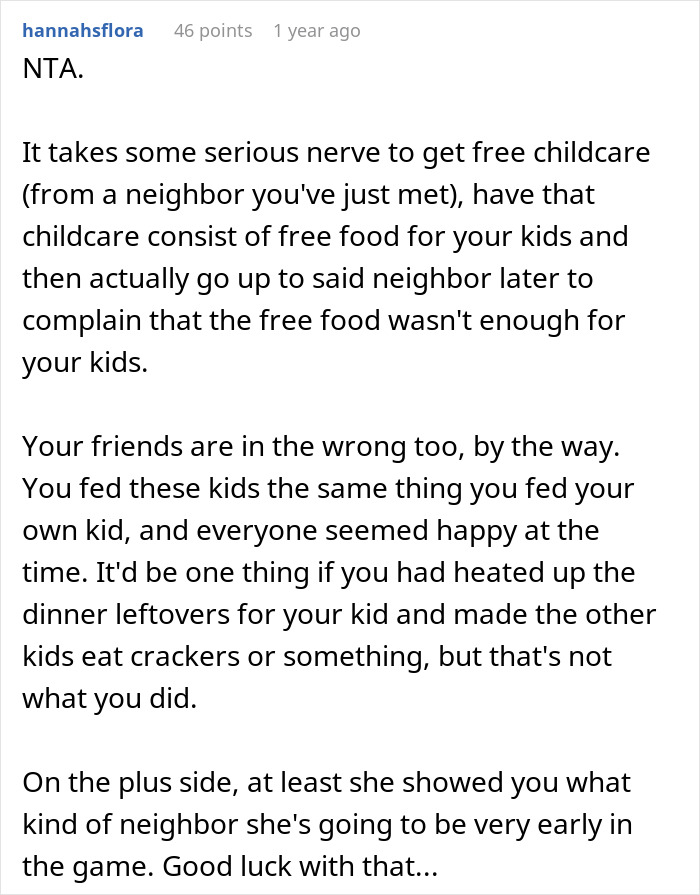

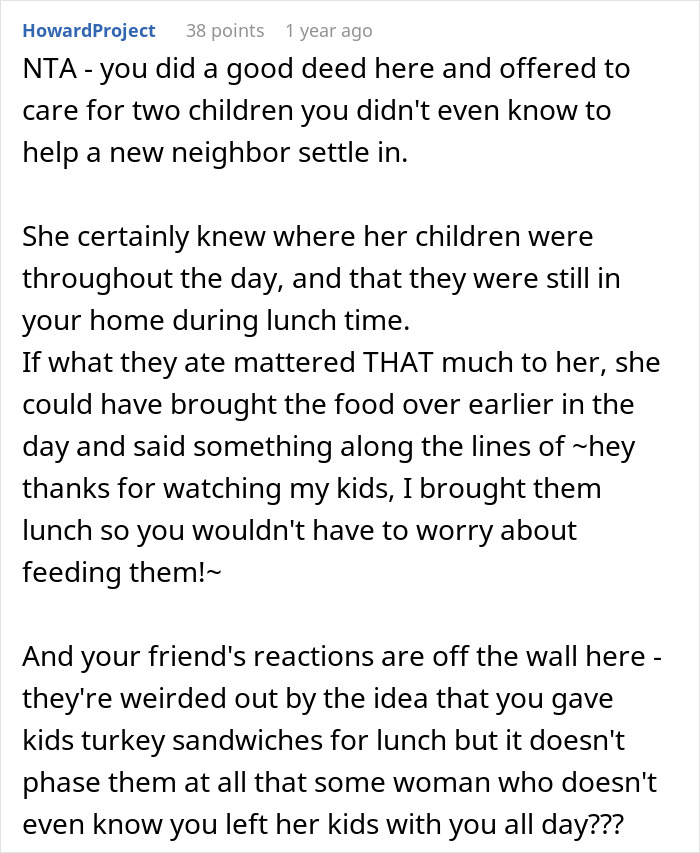





77
99